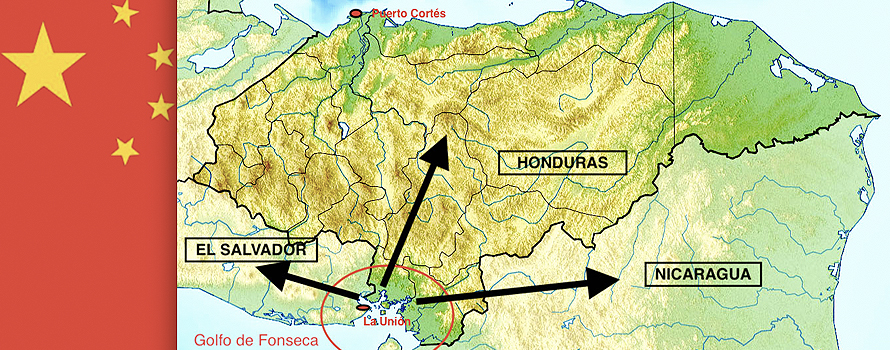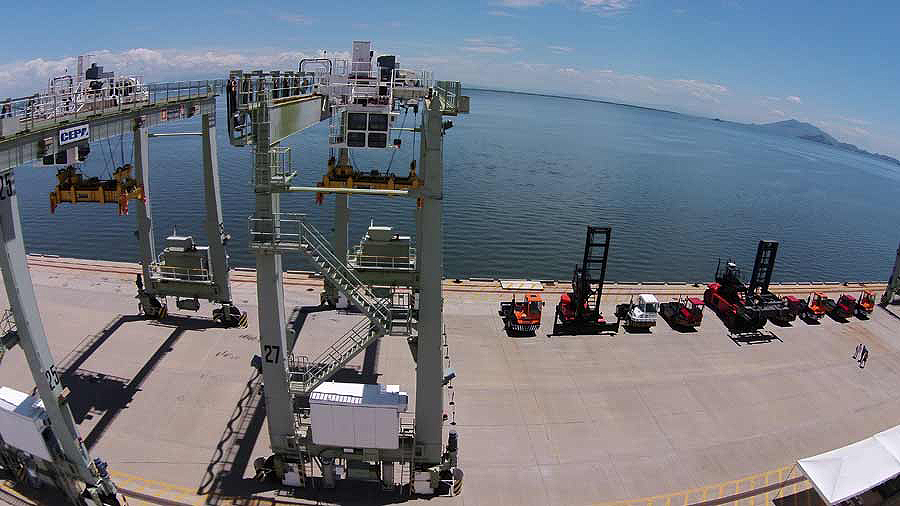Ruta de navegación
Menú de navegación
Blogs
Entries with label el salvador .
[Roberto Valencia, Letter from Zacatraz. Libros del K.O. Madrid, 2018. 384 pp.]
review / Jimena Villacorta
 |
The story of El Directo – a young Salvadoran man who at the age of 17 was blamed for 17 murders, who was in and out of prison and was eventually sentenced by his fellow gang members – serves as a canvas for an even bigger picture: the serious social problem posed by violent gangs in Central America, particularly in El Salvador.
Roberto Valencia, a Spanish journalist who has lived in that Central American country for almost twenty years, has dedicated time and effort to addressing this problem in depth as a reporter for "El Faro". portal Salvadoran news outlet awarded for his research. Letter from Zacatraz (as the local media call the maximum security prison of Zacateoluca) is a journalistic story that through a concrete story exposes the broader panorama of a truly complex reality.
September 11, 2012 was the first time Valencia sat down to talk with Gustavo Adolfo Parada Morales, alias El Directo, someone who for years had garnered media attention, despite the existence of thousands of other young people involved in gangs. That contact staff encouraged the journalist to seek out other testimonies, including fill in a book that collects Parada's direct voice and that of people who knew him, based on interviews with those who loved him, such as his mother or his wife, and with those who confronted him, such as some judges.
As a result of an unwanted pregnancy, El Directo was born on January 25, 1982 in the city of San Miguel. Barely two decades later, he was already the most dangerous and feared man in El Salvador, or at least that's how the media projected him. A member of the Pana di Locos, a clique of the Mara Salvatrucha, he became the main public enemy. From the age of 17, accused of as many murders (of which he only admitted six) and various crimes, El Directo was in three juvenile detention centers and nine prisons. He had the opportunity to start a new life in Costa Rica, but it was ruined. He didn't make it to the United States. He was free for several months, but it wasn't long before the police recaptured him.
Through Parada's life, the author projects the phenomenon of the maras in El Salvador. It emphasizes how this phenomenon mainly affects the lower classes, while the rest of society does not realize the full magnitude of the problem and, therefore, is not interested in finding a solution. How is it possible, Valencia asks, that a society like El Salvador's, with 6.5 million inhabitants, tolerates an average of 10 homicides a day, not to mention the numerous other crimes, in a country where 1% of the population are gang members.
The repressive measures applied by the governments of the right (ARENA) and the left (FMLN) have not improved the gang problem. They have been growing, both inside and outside detention centres, many of which are in a deplorable state. It is precisely the condition of the prisons that aggravates the status: The infrastructure is damaged, there is a great deal of unsanitary conditions and overcrowding is extreme. In most prisons, gang leaders have a large share of control and dominate their respective organizations. "El Salvador's prison system is the most overcrowded in the hemisphere, according to the Organization of American States," Valencia said.
El Directo went through several prisons, where he was seriously wounded on multiple occasions, sometimes by order of the Mara Salvatrucha, which declared him a traitor and threatened to kill him, and other times by police and prison employees. After a few months in prison, he decided to reform himself and give up his activity in the MS. This brought him several opportunities, but he returned to prison. He was finally murdered in 2013, at the age of 31, by members of his new gang, La Mirada Locos, because he had been accused of ordering the killing of someone from the organization with whose wife he had had an affair.
It is interesting to note how in a country where a large number of crimes are recorded, for at least ten years the case of El Directo had an absolute priority in the media, which often exaggerated Parada's criminal record. "We live in a country where great murderers have been granted amnesty. The drugs circulate relatively freely and, despite the fact that police officials have said that there are important names in the business, of the state apparatus and the army involved in drug trafficking, we have not seen any arrests at that level," he told Valencia President of the Central American University, José María Tojeira. And he adds: "Income tax evasion is a fairly widespread vice among the wealthiest sectors. The police are still dealing with a Degree of significant corruption. Deputies are pardoned or investigated for acts in which the life or honor of other citizens has been severely threatened." For his part, Fernando Sáenz Lacalle, archbishop emeritus of San Salvador, regrets that journalists, commentators, analysts and politicians repeated over and over again, "like a church choir, the false refrain of the 17 years, 17 murders." In his opinion, "perhaps they went too far in terms of display and arrogance," according to Valencia.
Roberto Valencia concludes that the problem with the media is that at first they were benevolent towards the gangs, and then magnified the phenomenon, not to mention the repressive measures and the policies used to combat them.
Letter from Zacatraz is not a condescending book, but the criticism does not drown all hope. He warns that Salvadorans have become accustomed to living with this problem. Nowadays it is more common to avoid certain places that are known to be dangerous, than to try to fight for the betterment of the country. But it fosters confidence that shattered lives like El Directo's will serve to make new generations want something better for themselves.
After breaking off relations with Taipei, the Salvadoran government could give Beijing the management of a strategic port in the region.
Until a few years ago, China had no interest in Central America, basically due to the lack of raw materials. The region's quasi-bloc diplomatic relationship with Taiwan also diverted its attention. But the dynamics have changed. Encouraged by Chinese promises, in August El Salvador joined other neighbouring countries that have been closing their embassies in Taipei. Why is China now interested in Central America? The Salvadoran case points to a desire to gain weight in a area of historic US influence.

article / Jimena Villacorta
"After this careful analysis, advertisement that my government has taken the decision to break the so-called diplomatic relations maintained until today between the Republic of El Salvador and Taiwan and to establish diplomatic relations between the Republic of El Salvador and the People's Republic of China". This is how Salvadoran President Salvador Sánchez Cerén announced the establishment of diplomatic ties with Beijing on 20 August. The decision followed those taken in May by the Dominican Republic and in 2017 by Panama, breaking the Central American countries' support for Taiwan.
Taiwan responded to this advertisement by asserting that the government of El Salvador had demanded an "astronomical sum" of money to finance the Salvadoran port of La Unión and the 2019 presidential election campaign of the government party, the Farabundo Martí National Liberation Front (FMLN), which the Salvadoran government denied. The Taiwanese foreign minister, Joseph Wu, presented the rupture of relations as a decision by Taipei, due to its refusal to yield to these pressures, even though everything indicates that the initiative was Salvadoran.
The internship of hidden payments is, of course, nothing new in the links between Taiwan and Central America, as it has been demonstrated that submission cheques have been given to leaders of El Salvador and other countries to maintain diplomatic recognition that is so convenient for the Asian island. In any case, this is a margin of corruption that, sometimes in the form of commissions, has also accompanied China's disembarkation in various countries.
The Salvadoran government's move was criticised by civil service examination. The mayor of San Salvador, Ernesto Muyshondt of the Nationalist Republican Alliance (ARENA), described the decision as "terrible" and regretted that the FMLN leaders not only support "the repressive and murderous dictatorships of Cuba, Venezuela and Nicaragua", but also that "now they are breaking with a democratic country to establish relations with another dictatorship".
partner The civil service examination criticised the government for being motivated by partisan interests and leaving in the air the treaties and agreements signed with Taiwan, which has been a strategic partner for the country for 85 years and one of its main cooperating partners in the areas of technology, health, agriculture and Education. Thus, there has been a loss of cooperation projects, financial resources and other aid, such as the scholarship scheme for Salvadoran students in Taiwan.
US Alert
The change of partner is expected to mean the replacement of Taiwanese programmes with Chinese investment projects. In recent years, El Salvador has imported much more from China (804 million dollars in 2016) than from Taiwan (135 million dollars), but has exported similarly to both countries (around 50 million dollars to each). It is likely that Taiwan will now stop favouring the purchase of Salvadoran products, which it used to prioritise, and that China will compensate for the new relationship with investment in infrastructure.
This is where the possibility that China could take over the concession for the port of La Unión Centroamericana, in the south-eastern corner of El Salvador, in the Gulf of Fonseca, comes in. The government has acknowledged Chinese interest in the port, while civil service examination criticises the lack of information in the negotiations. The US Embassy has even raised suspicions about the risk that, given the lack of transparency in the negotiations, China could use the facilities as a military base. Ambassador Jean Manes stated that "China's strategy of expansion in the region, not only economically but also militarily, is alarming". In fact, Washington has been warning for some time about China's increased presence in Central America, as in the case of the Panama Canal, in principle with civilian projects but which in certain circumstances could call into question US security.
The US Embassy has also indicated Chinese interest in buying Perico Island, located next to the port of La Unión. Last October, Ezequiel Milla, mayor of La Unión, declared that he had met with Bo Yang, a Chinese businessman and vice-president of the China-El Salvador Chamber of Commerce, to discuss the sale of the island to build hotels. For his part, the businessman admitted to having discussed purchase intentions with the owners of the private part of the island, where several families reside, who must be willing to vacate their homes. The island contains an important flora and fauna reservation .
Untapped port
The port of La Unión is strategically located on the Gulf of Fonseca, where El Salvador, Nicaragua and Honduras meet (it is Honduras' only access to the Pacific). In addition, it can connect in a matter of a few kilometres to the dry canal that Honduras is about to complete by widening the road linking its facilities at Puerto Cortés on the Atlantic to the Gulf of Fonseca. Honduras' coastline in the Gulf is not suitable for a deep-water port, so the natural outlet for its goods to the Pacific would be La Unión.
The project construction of the port started in 1994, under the presidency of Armando Calderón Sol, with the goal aim of becoming the future "hub of the Americas", so that ships larger than the Panama Canal could dock there. Thanks to a loan from the Japan Bank for International Cooperation (JBIC), the project was launched. The port was built between 2005 and 2008 and inaugurated in 2010.
Under the presidency of Antonio Saca, there were two decrees for its concession. The first, in 2008, was a master concession formula, i.e. there would only be one operator managing the port for 25 years; however, it was not possible to reach an agreement in the Legislative Assembly, agreement . In 2009, the second decree was presented, proposing a company composed of the state-owned Autonomous Port Executive Commission (CEPA) and an international operator, with a 10% and 90% shareholding, respectively. But due to the change of government and other internal complications it was not approved either.
In June 2010, with Mauricio Funes as president, the port of La Unión was inaugurated under state administration, in the hope that a concession could be agreed that same year. In the end, it was decided to apply the master concession. In September, the Assembly approved decree 834, containing the port concession law. Due to the lack of approval of the instructions tender and the contract by other institutions, the port concession was postponed for a couple of years, during which time the interested companies dropped out of the talks.
The bidding process was finally launched in 2014, but the tender was declared void in 2015 because there were no bids to operate the infrastructure. In 2017, some laws were amended to attract investors, given the urgency of operating the port, which has cost the country almost $20 million to maintain over the past decade.
|
Port of La Unión, in the Gulf of Fonseca, in the Central American Pacific [ECA]. |
Special Economic Zone
If the facilities have so far attracted so little interest from investors, what benefit could China see in La Unión? ARENA deputy Mauricio Vargas does not believe that Beijing has any economic interest in the port, but rather that it is pursuing strategic objectives, as the Gulf of Fonseca provides access to three Central American countries and is part of the area which the US considers important for its own security.
To make the option of La Unión more attractive, in July 2018 the FMLN government presented the Special Economic Zone Law for the South Eastern Region of El Salvador, area corresponding to La Unión and a score of neighbouring municipalities. Thanks to tax advantages, China could turn this Pacific point into a distribution centre for its products in the Central American Northern Triangle and Nicaragua. The connection through the Honduran dry canal would facilitate connections with the Atlantic.
The civil service examination believes that the creation of this special economic zone, which in case of a massive influx of Chinese products could negatively affect local manufacturing, has been agreed in advance with China. The ECA president, however, denies any obscurantism in the process. "We have nothing to hide. The process we are going through is transparent; we have entered a stage of enquiry. The interest of our administration is that the port of La Unión is operated and we must see it as project of the country". He assured that there are companies interested in the concession also from Europe and America, not only from Asia.

